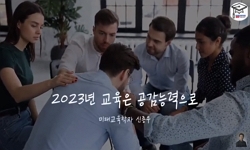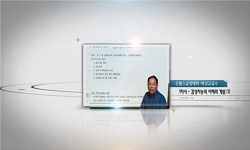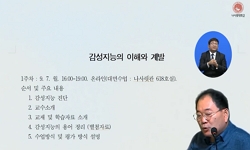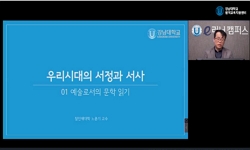본 연구에서는 인지행동치료 집단프로그램이 비행청소년의 충동성 및 공감능력에 미치는 효과를 검증하고자 하였다. 이 연구의 대상은 보호처분을 받은 비행청소년 중 피험자24명을 선발하...
http://chineseinput.net/에서 pinyin(병음)방식으로 중국어를 변환할 수 있습니다.
변환된 중국어를 복사하여 사용하시면 됩니다.
- 中文 을 입력하시려면 zhongwen을 입력하시고 space를누르시면됩니다.
- 北京 을 입력하시려면 beijing을 입력하시고 space를 누르시면 됩니다.
인지행동치료 집단프로그램이 비행청소년의 충동성 및 공감능력에 미치는 효과 = The Effect of the group program of Cognitive-Behavioral therapy on the Impulsivity and Empathy of Juvenile Delinquents
한글로보기https://www.riss.kr/link?id=T11909276
- 저자
-
발행사항
경산 : 대구가톨릭대학교 일반대학원, 2010
-
학위논문사항
학위논문(석사) -- 대구가톨릭대학교 일반대학원 , 심리학과 , 2010. 2
-
발행연도
2010
-
작성언어
한국어
- 주제어
-
발행국(도시)
경상북도
-
형태사항
v, 48 p. ; 26cm
- 소장기관
-
0
상세조회 -
0
다운로드
부가정보
국문 초록 (Abstract)
프로그램의 효과를 검증하기 위해 피험자를 대상으로 사전과 사후검사에 사용된 검사 도구로는 충동성 검사, 공감능력 검사를 실시하였으며 모두 자기 보고식 설문이었다. 본 연구의 목적을 달성하기 위해 자료의 처리는 집단간 동질성 검사를 위해 독립표본 t-검증을 하였으며, 프로그램 실시 전과실시 후의 변화와 집단간의 차이를 알아보기 위해서 2원 변량분석을 실시하였다.
본 연구에서 밝혀진 주요 결과는 다음과 같다.
첫째, 인지행동치료 집단프로그램에 참여한 비행청소년집단이 치료를 받지 않은 통제집단의 비행청소년보다 충동성이 유의미하게 감소되었다.
둘째, 인지행동치료 집단프로그램에 참여한 비행청소년집단이 치료를 받지 않는 통제집단의 비행청소년보다 공감능력이 향상되었다.
본 연구의 의의는 비행과 직접적인 관련이 있는 청소년들을 대상으로 전문적인 중재 프로그램을 제시하였다는 것과 그에 대한 적용 가능성과 유용성을 다시 한번 확인하였다는데 있다. 그리고 프로그램에서 훈련된 효과를 현실적 생활과 접목시키기 위해 실생활의 문제상황을 프로그램 과정 중에 풀어봄으로써 직접적이고 현실적인 문제해결을 시도해보았으며, 인지행동치료 집단프로그램이 공감능력의 향상에도 기여할 수 있음을 확인하였다. 또한 다양한 유형의 비행청소년들이 인지행동치료 집단프로그램에 참여하여 충동성 감소와 공감능력의 향상에 효과를 보았으며, 실천적인 측면에서 비행 청소년의 문제를 보다 효과적이고 실질적으로 다룰 수 있는 대안을 제시했다는 점을 들 수 있다.
본 연구에서는 인지행동치료 집단프로그램이 비행청소년의 충동성 및 공감능력에 미치는 효과를 검증하고자 하였다. 이 연구의 대상은 보호처분을 받은 비행청소년 중 피험자24명을 선발하여, 집단프로그램을 실시하는 실험집단과 아무 처치도 하지 않는 통제집단에 각각 12명씩 무선 배정하였다. 실험집단에는 주 2회씩 5주간에 걸쳐 10회기의 인지행동치료 집단프로그램을 실시하였다.
프로그램의 효과를 검증하기 위해 피험자를 대상으로 사전과 사후검사에 사용된 검사 도구로는 충동성 검사, 공감능력 검사를 실시하였으며 모두 자기 보고식 설문이었다. 본 연구의 목적을 달성하기 위해 자료의 처리는 집단간 동질성 검사를 위해 독립표본 t-검증을 하였으며, 프로그램 실시 전과실시 후의 변화와 집단간의 차이를 알아보기 위해서 2원 변량분석을 실시하였다.
본 연구에서 밝혀진 주요 결과는 다음과 같다.
첫째, 인지행동치료 집단프로그램에 참여한 비행청소년집단이 치료를 받지 않은 통제집단의 비행청소년보다 충동성이 유의미하게 감소되었다.
둘째, 인지행동치료 집단프로그램에 참여한 비행청소년집단이 치료를 받지 않는 통제집단의 비행청소년보다 공감능력이 향상되었다.
본 연구의 의의는 비행과 직접적인 관련이 있는 청소년들을 대상으로 전문적인 중재 프로그램을 제시하였다는 것과 그에 대한 적용 가능성과 유용성을 다시 한번 확인하였다는데 있다. 그리고 프로그램에서 훈련된 효과를 현실적 생활과 접목시키기 위해 실생활의 문제상황을 프로그램 과정 중에 풀어봄으로써 직접적이고 현실적인 문제해결을 시도해보았으며, 인지행동치료 집단프로그램이 공감능력의 향상에도 기여할 수 있음을 확인하였다. 또한 다양한 유형의 비행청소년들이 인지행동치료 집단프로그램에 참여하여 충동성 감소와 공감능력의 향상에 효과를 보았으며, 실천적인 측면에서 비행 청소년의 문제를 보다 효과적이고 실질적으로 다룰 수 있는 대안을 제시했다는 점을 들 수 있다.
다국어 초록 (Multilingual Abstract)
In order to verify the effect of the program, Impulsiveness test and empathy test were conducted with the subjects as test tools used in the pre-post test and all of them were questionnaires of the self-report type. In order to achieve the purpose of the current study, data processing passed through independent sample t-test so as to verify homogeneity between groups, and Two-way ANOVA was conducted within each treatment conditions, in order to examine the difference between the previous and the following condition of this program. In addition, to investigate the variation in the results between the experimental group and the control group.
Main findings elucidated in the present study are as follows.
First, the impulsivity of juvenile delinquents who joined the group program of cognitive-behavioral therapy decreased more significantly than that of the control group who did not receive the therapy.
Secondly, the empathy of juvenile delinquents who joined the group program of cognitive-behavioral therapy decreased more significantly than that of the control group who did not receive the therapy.
That is to say, the meaning of this research lie in the facts that it proposed the specialized mediation program to adolescents directly associated with delinquency and confirmed the applicability and the usefulness once more. And in order to integrate the effect trained in the program with real life, we tried to solve direct and realistic problems by figuring out problematic situations of real life in the course of the program, and we verified that it could contribute to the enhancement effect of the group program of cognitive-behavioral therapy on the empathy. Besides, they experienced the effect of the decrease in impulsivity and the improvement of the empathy as juvenile delinquents of diverse types participated in the group program of cognitive-behavioral therapy, and from the practical aspect, we could suggest the alternative to address the issues of juvenile delinquents effectively and practically.
The current research aimed to test the effect of the group program of cognitive-behavioral therapy on the impulsivity and empathy of juvenile delinquents. The subjects of this research were selected as 24 people out of juvenile delinquents, who were s...
The current research aimed to test the effect of the group program of cognitive-behavioral therapy on the impulsivity and empathy of juvenile delinquents. The subjects of this research were selected as 24 people out of juvenile delinquents, who were submitted to the disciplinary measure of protection, and 12 adolescents were randomly assigned respectively to the experimental group with which the group program was conducted and the control group without any treatment. For the experimental group, the group program of cognitive-behavioral therapy of 10 sessions was conducted two times a week for 5 weeks.
In order to verify the effect of the program, Impulsiveness test and empathy test were conducted with the subjects as test tools used in the pre-post test and all of them were questionnaires of the self-report type. In order to achieve the purpose of the current study, data processing passed through independent sample t-test so as to verify homogeneity between groups, and Two-way ANOVA was conducted within each treatment conditions, in order to examine the difference between the previous and the following condition of this program. In addition, to investigate the variation in the results between the experimental group and the control group.
Main findings elucidated in the present study are as follows.
First, the impulsivity of juvenile delinquents who joined the group program of cognitive-behavioral therapy decreased more significantly than that of the control group who did not receive the therapy.
Secondly, the empathy of juvenile delinquents who joined the group program of cognitive-behavioral therapy decreased more significantly than that of the control group who did not receive the therapy.
That is to say, the meaning of this research lie in the facts that it proposed the specialized mediation program to adolescents directly associated with delinquency and confirmed the applicability and the usefulness once more. And in order to integrate the effect trained in the program with real life, we tried to solve direct and realistic problems by figuring out problematic situations of real life in the course of the program, and we verified that it could contribute to the enhancement effect of the group program of cognitive-behavioral therapy on the empathy. Besides, they experienced the effect of the decrease in impulsivity and the improvement of the empathy as juvenile delinquents of diverse types participated in the group program of cognitive-behavioral therapy, and from the practical aspect, we could suggest the alternative to address the issues of juvenile delinquents effectively and practically.
목차 (Table of Contents)
- Ⅰ. 서론 1
- 1. 연구의 필요성 및 목적 1
- 2. 이론적 배경 3
- 1) 충동성 3
- 2) 공감능력 6
- Ⅰ. 서론 1
- 1. 연구의 필요성 및 목적 1
- 2. 이론적 배경 3
- 1) 충동성 3
- 2) 공감능력 6
- 3) 인지행동치료 집단프로그램 8
- 3. 연구가설 13
- Ⅱ. 방법 14
- 1. 피험자 14
- 2. 설계 15
- 3. 절차 15
- 1) 사전검사 15
- 2) 프로그램 실시 15
- 3) 사후검사 16
- 4. 인지행동치료 집단프로그램 구성 16
- 5. 측정도구 18
- 1) 충동성 평가척도 18
- 2) 공감능력 평가척도 19
- 6. 자료분석 20
- Ⅲ. 결과 21
- 1. 인지행동치료 집단프로그램이 비행청소년의 충동성에 미치는 효과 21
- 2. 인지행동치료 집단프로그램이 비행청소년의 공감능력에 미치는 효과 23
- Ⅳ. 논의 25
- Ⅴ. 요약 29
- 참고문헌 30
- 부록 36












